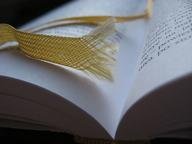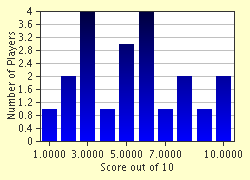Quiz Answer Key and Fun Facts
1. "The Pilgrim's Progress" is strongly Christian Protestant in its message, but what other form of religion is particularly denigrated in it?
2. The book was written in two parts, the first describing a journey made by the main character, the second a similar journey by his wife and family. What was this character known as?
3. Who was the English monarch when the book was written?
4. Where was John Bunyan when he began to write this book?
5. Who was NOT one of the many characters in the book?
6. Which of the many places in this book was used as the title of a novel by William Thackeray that was published two hundred years after "The Pilgrim's Progress"?
7. Which of these is NOT a place in the book?
8. What is the main character's ultimate destination?
9. What is the burden carried by the main character at the start of his journey?
10. Where did the main character live before he started his journey?
Source: Author
davejacobs
This quiz was reviewed by FunTrivia editor
looney_tunes before going online.
Any errors found in FunTrivia content are routinely corrected through our feedback system.

